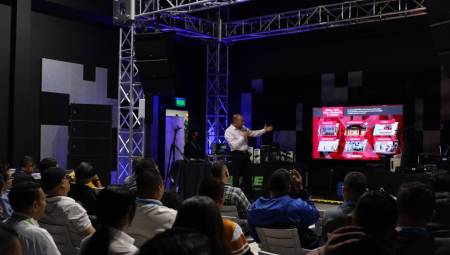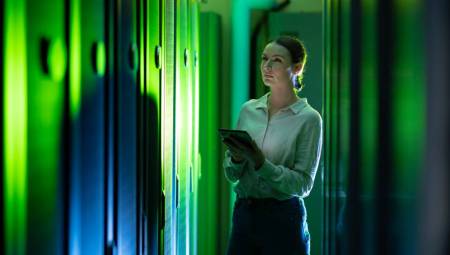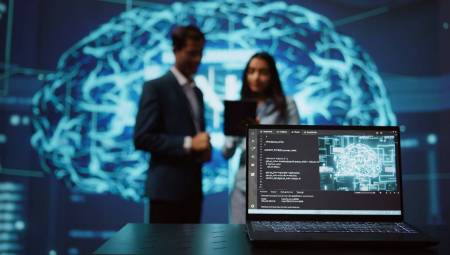 Latin America. As the front pages of newspapers have shown us in recent times, we live in a world in which open democratic values are under attack. Paris, Bamako, San Bernardino, Jakarta, Ouagadougou: all these places have been targeted by terrorists.
Latin America. As the front pages of newspapers have shown us in recent times, we live in a world in which open democratic values are under attack. Paris, Bamako, San Bernardino, Jakarta, Ouagadougou: all these places have been targeted by terrorists.
The European Union is being questioned about nation-state loyalties: geopolitical realities are driving many EU countries to open their doors to refugees, while others are closing them at a time when the world is hostage to the senseless actions of entities that are neither nations nor states.
At the same time, we are in the midst of a technological revolution that is transforming our society. The Internet of Things (or the Fourth Industrial Revolution, as it's sometimes called) is driving a new way for businesses to optimize their operations. The widespread use of software applications has already launched powerful new business models, where cost structures have been completely reformed. Excess supply and demand are being assumed and met, respectively. Earnings operating models are changing. Work models will also be transformed in due course.
Software, which has become so essential and transformative, has also introduced a digital threat vector for many of the same actors trying to attack democracies in the physical world. We must resist responding to this threat by simply tightening borders, denying access and limiting the capabilities of technology. On the contrary, we must adopt a security posture that empowers and substantiates us to bring about the kind of society we strive to achieve: an agile society.
How to understand the digital dynamics of the Fourth Industrial Revolution
What makes this revolution unique is that the user is now in the driver's seat: they demand a digital experience that is constantly improving, easy to use and permanently active. Companies — and interestingly also some countries — are reshaping their value propositions to gain market share and share in the digital age.
Take Estonia, which is pioneering the idea of a country without borders with its recent launch of the world's first "e-residency" program, through which a government-issued digital identity and an Estonian address can be obtained, making it possible to create a "location-independent" company and carry out online banking activities. A small country that, through digital transformation, can now count on the entire world as its potential market.
We've already seen that industry pillars such as transportation (taxis, travel agencies), finance (digital banking, Bitcoin) and healthcare (remote access to care) are rewriting history around the world with software applications. Companies used to take decades to expand their global reach, but in the digital age it takes a few weeks, sometimes days. The real power of Estonia's example is that it goes beyond particular industries to show that software can transform the way we think about the very borders we have relied on to organize our world for centuries.
The e-residency rests on the ideal of digital security: to guarantee a level of trust and allow a business model that, without security, would not be possible. Whether it's securing the Internet of Things —between 20 and 30 trillion units1 or the industrial Internet and its connected power plants and factories against hackers—perceiving the potential of our new connected world will provide new approaches to security.
Security: how to empower the agile society
As the technological surface of our world expands, the time is approaching to take a look at the cyber-borders we are already building and test the nation-state to change the world. If vulnerabilities like Heartbleed, malwares like Conficker, and breaches like Sony Entertainment's have taught us anything, it's that hackers don't recognize borders and security can't be an afterthought.
As software increasingly flies our planes and drives our cars and drives our economy, digital security not only enables physical security and data protection, but also provides the momentum needed for a better life and for global growth.
As hackers began to exploit deeper vulnerabilities in the technology around us, we need to focus on security as a global challenge that demands a new paradigm. For the potential of the digital age to be fully realized, we need to ensure that the world's borders feel open while protecting individuals and institutions from attack. This protection will increasingly be based on identity and the secondary system.
A recent example is the card fraud protection offered by banks. Putting up multiple barriers makes using an app or service cumbersome. Instead, access is streamlined and facilitated using identity and access management and authentication and analytics technologies that automate security processes in the secondary system.
As we move forward, we need to become more and more aware that we are actually building a new type of global infrastructure in real time. Starting with a few simple truths can help. First, as an agile society, we need to start seeing the world as a system, not a collection of discrete digital entities, and that means that governments and standardization organizations have to work together.
Secondly, we have to accept that the massively organic digital world cannot be accurately predicted and controlled, but that we must understand and respond to it accordingly. It is temporary and alive and moves fast. This requires technological innovation inherent in sensors, machine learning and analytics.
Third, we need to foster agility in the form of open innovation and the belief that, as in software development, iteration is the only way to keep pace with the rate of change and avoid catastrophic, large-scale failures of systems we deemed "perfect."
Behind the attacks on open democratic values taking place everywhere, the democratizing influence of the Internet and the Fourth Industrial Revolution are moving forward, boldly and unhindered. While the explicit borders of nation-states are being challenged and, in some cases, dismantled or diminished, the implicit borders of the digital world are beginning to take shape. The opportunity to do it right is now and you have to tell the world that it is possible to get it.
*Text written by Ayman Sayed, Product Manager, CA Technologies















